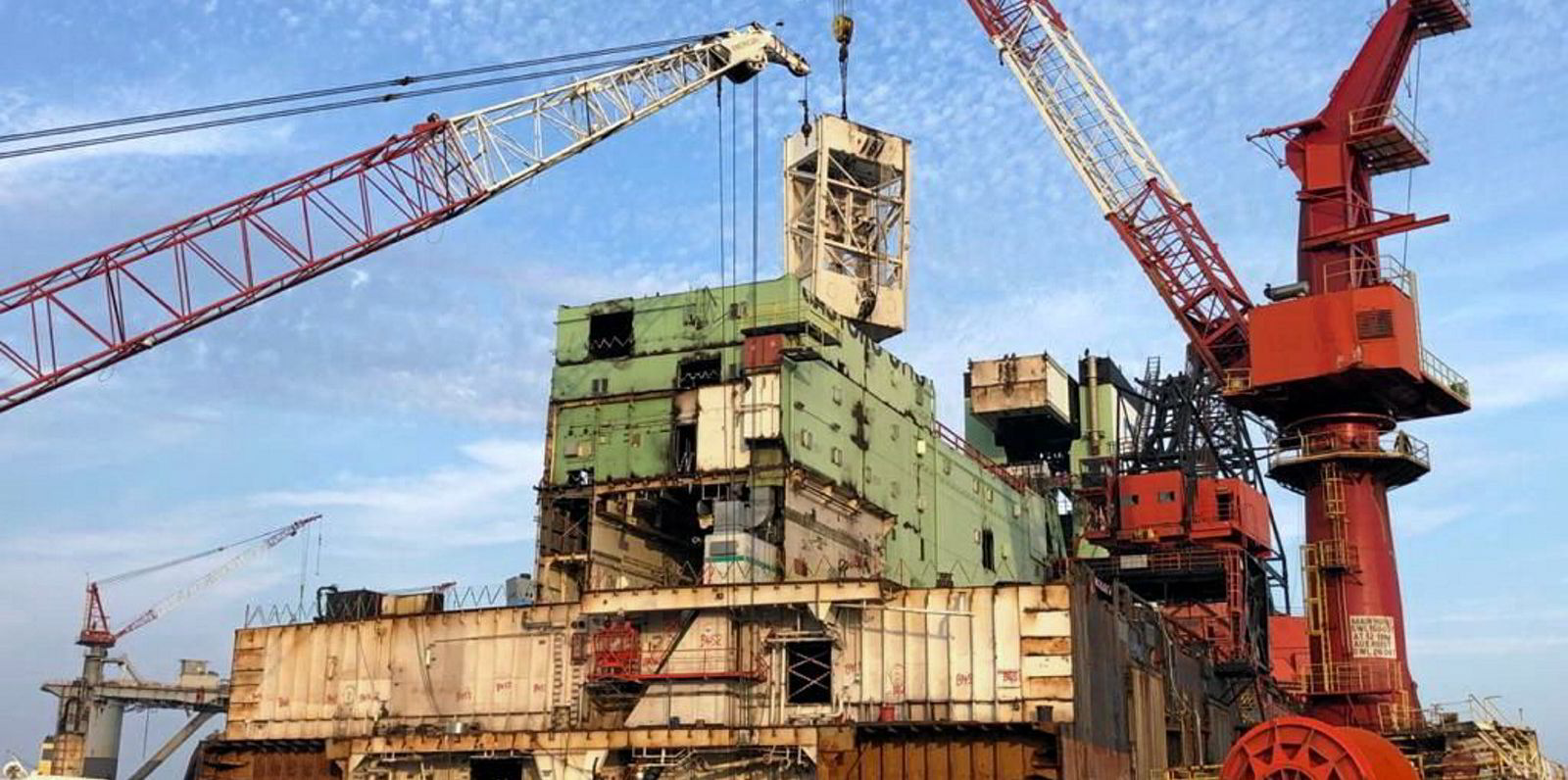Tanker scrapping is likely to surge despite the potential for continued high earnings, in an echo of a trend from the early 2000s, according to analysts.
The proportion of tankers aged 20 years or more has hit historic highs, and although owners will want to continue tapping the strong market, the demands of environmental regulations will probably win out, Fearnley Securities said.
A similar situation happened two decades ago when the introduction of double-hulled tankers forced owners to recycle vessels.
“That was the only period which saw a high phase-out of tankers despite strong earnings and was due to the single-hull phase-out,” said Fearnley analysts.
“This time around, new regulations could yield similar effects, to some extent at least.”
The average age of crude and product tankers of more than 10,000 dwt stood at 12.6 years at the start of September, with 13% of the fleet aged more than 20 years, according to Clarksons data.
Five years earlier, just 6% of the fleet was aged more than 20 years, with an average age of 10.4 years. The orderbook was also stronger.
The introduction of measures to rate a ship’s energy efficiency is expected to lead to increased scrapping, although levels have dried up so far in 2023.
The fleet has aged as owners have delayed renewal plans because of uncertainty over the choice of new fuels.
New shipowners have also emerged to snap up elderly tonnage at high prices to secure initial bumper rates for hauling Russian oil following the invasion of Ukraine.
Rising prices have meant Russian crude has breached the Western price cap, forcing some European-linked players out of the trades.
However, VesselsValue reported that secondhand sales of aframaxes, which dominate the Russian trades, remain strong.
New breed of tanker player
Aframax prices are hovering near historical highs as Greek owners offload tankers, with many going to unknown buyers, it said. It valued a 15-year-old aframax at $40.4m in September; its scrap value is around $9m.
“Since the sanctions on Russian commodities came into force, a new breed of tanker market player has emerged keen to take advantage of potentially elevated rates,” said analyst Rebecca Galanopoulos Jones.
“The fact that there have been no demolition sales reported this year highlights the continued strong demand for this sector, and as values remain high, there are plenty of prospects for secondhand sales of older vessels at an age where such vessels would previously have been scrap candidates at current earnings levels.”
Read more
- YieldStreet to pay $1.9m after US investigation of vessel scrap financings
- Chinese bulker owners leading the way on scrapping, Clarksons says
- Petrobras scraps product carriers that never launched but tanker demolitions are still down
- ‘Everything for sale at the right price’, insists Stena Bulk’s Erik Hanell on LNG fleet
- OOIL retains firepower for further big dividend payouts, say analysts





